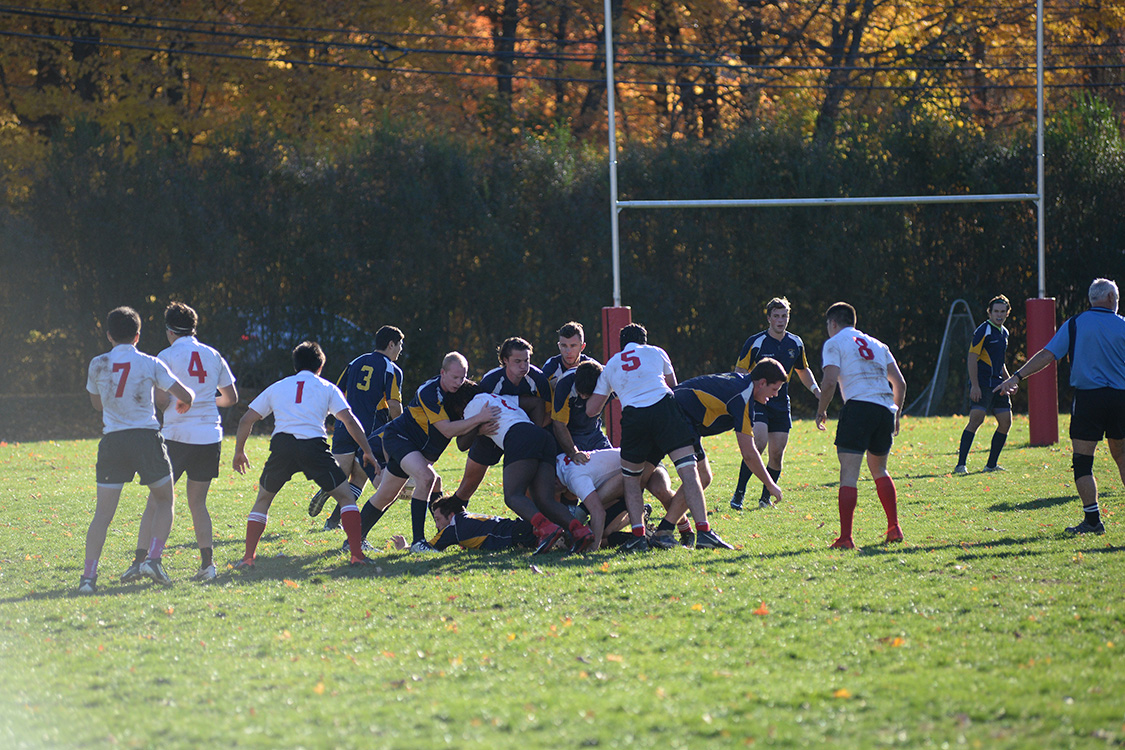
Oftentimes when we think of athletes, we imagine that invincibility flows through their veins. We never imagine aspects of vulnerability, such as panic attacks, as being a major part of athletes’ lives. Furthermore, there is a discernible stigma associated with mental health issues, especially in such a public sphere as athletics, making it difficult to talk about such problems out loud.
Unfortunately, this lack of awareness regarding mental health in sports often leads to an immense amount of criticism from society towards athletes. For instance, when Simone Biles decided to withdraw from the all-around finals in the 2021 Olympics because of the pressure she faced and the toll it took on her mental health, she faced scores of critics quick to call her “weak” and a “shame to the country.” While Biles’ decision to leave was an act of courage and a reflection of society’s constant pressure on athletes, the public did not reflect this understanding.
“I have to put my pride aside,” Biles said after her withdrawl. “I have to do what’s right for me and focus on my mental health and not jeopardize my health and well-being.”
While stigma in athletics is quite a significant issue, it is possible that not every athlete feels a constant sense of inadequacy and pressure in their sport. For example, there are a multitude of collegiate sports that foster acceptance for those who struggle and promote a sense of unity.
With these values in mind, Ryan Kane ’26 and Will Liao ’26, members of the club rugby team, sat down to talk about their experiences with being on the team and the atmosphere of each practice.
“Well, I just started playing rugby,” Kane said. “This past fall was a totally new sport for me. I really didn’t know much about the game going into it. But I knew from doing research online and talking to some of the members that it would be a really fun and supportive group. And then, the longer I was in it, the more I realized how great of a culture it really was, just everyone supporting each other. Everyone was really there for each other’s success and it was a really selfless culture.”
Liao, also new to the sport, echoed Kane’s sentiment.
“Although I had apprehension to join, I found the team to be incredibly supportive,” Liao said. “I think some of my closest bonds on campus are with the team I practice with almost every day and I love and cherish them because I know we always have each other’s backs.”
While it is very feasible for athletes to develop mental health issues from the continuous strain and tension from not only others, but also from themselves, there are some cases in which playing a sport might help to alleviate stress.
“I personally have never needed a break from [rugby] because I consider it to be one of the ways I keep my mental health intact,” Liao said. “That being said, if you were having issues, the team would help you. And if that means taking a break from the team, you’re going to know that you have a spot open for you. The moment you decide to come back and you’re ready, the door doesn’t close.”
The culture in America, especially regarding mental health, has always been to conceal and never reveal. Being authentic to yourself in front of everybody can cost you your reputation. But strength should not be determined by how you are perceived physically. Strength can be based on how vulnerable you are with yourself.
Kane shared his thoughts about the constant fixation on physicality in sports.
“Yeah, I think in the media, a lot of professional athletes are commonly boiled down to just numbers and statistics,” Kane said. “[Like] how many touchdowns [do] they throw in a season [or] how many running yards [they] have? It’s really easy to lose sight of the person inside of them.”
When talking about the consistency of mental health stigma, it is also important to note the lack of resources dedicated to athletes struggling with their mental health because of societal standards. One way to combat this lack of awareness is through open and honest conversations (if you are comfortable) with the people around you and even yourself.
Liao commented on the importance of being vulnerable with the team and how this vulnerability can build community.
“I find that we respect strength, because it takes a lot of strength to be vulnerable and be open, and we respect and trust each other,” Liao said. “And we know that by internalizing that, and using it as like, ‘Oh, I’m going to keep it all deep down.’ You’re only going to hurt yourself and people around you, you’re not going to be able to play at your highest capacity. So we trust each other enough that we will be open about our mental health because that affects who we are and how we play.”
One of the things that society is missing is honesty: honesty with ourselves and how we are feeling, and honesty with others. It is crucial that we stop treating mental health issues as taboo, as they are not uncommon. Furthermore, vulnerability is not a weakness and should be considered a strength, as you are being open with yourself.
Your mental health should never be pushed aside in an effort for our society to remain “perfect.”
Oluchi Chukwuemeka can be reached at ochukwuemeka@wesleyan.edu.



Leave a Reply